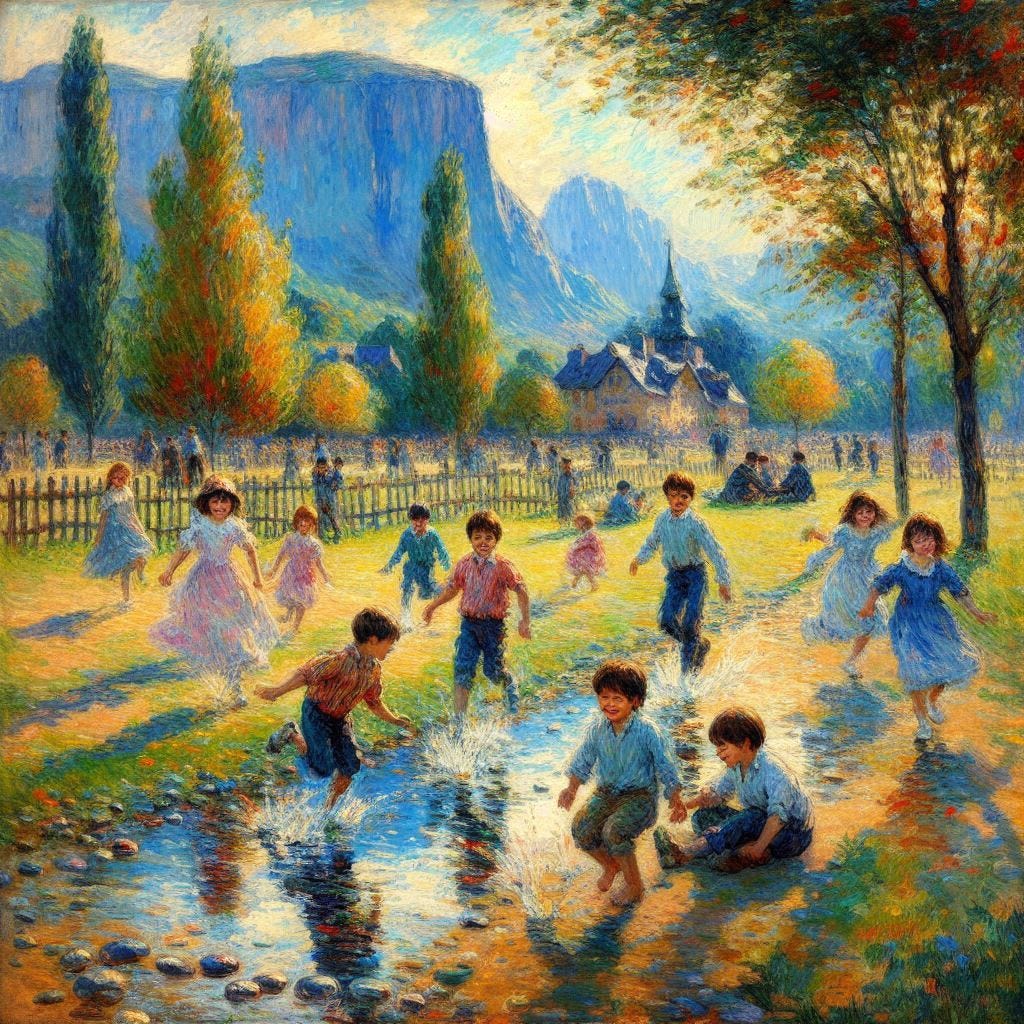Summer Savvy: Infusing Learning into Your Child's Fun
Create an Environment in which Learning is Amazing, and Life is Learning
Should Summer Be Academic or Fun?
Define fun. My children think reading is fun. They think science is fun… and history too. They think these are fun and playful because I make them that way. We’ve created an environment in our home where reading is a joy. Reading is where all the good stuff is. We'll go to the library, and every year they have a “read so many books and get a pizza party.” I’m super supportive. But my kids just ask, “I don’t understand. Why wouldn’t I want to read books?” I explain that not all kids like reading. That’s novel to them. They love reading. They see me read and their dad. Reading is so integrated into their life. It’s fun. Science is the same way. Science is everywhere. My husband and I are scientists. Everywhere we go is a science lesson. We answer all their questions about how their bodies work and why plants are the way they are.
We were up in Page, Arizona, with family, sitting on a beach that humans made. I was sitting on the bank and thought, "These are really unusual rocks." I asked my kids, “What kind of rock is this?” It was black and had holes. My kids said, “Oh, that’s an igneous rock.” They know that because we’ve been pointing out igneous rocks forever. We also are lucky enough to live near Sunset Crater National Monument, where a volcano exploded a thousand years ago. So they know what lava looks like. If you know what lava looks like, you know every igneous rock there is. So I’ll pull up another rock, and they’ll say, “This is sedimentary rock.” They know that because when we go to the slot canyons, I told them, "This is sandstone. Like sand, it falls apart." Then one of my kids said, “Oh, I found a tiger’s eye.” That’s a type of metamorphic rock. They can identify these things. My family was stunned. "How do you know so much about rocks?" Well, I had to teach it to my kids. My kids were interested in rocks, so I learned about rocks, and we learned together. It’s just part of our world, part of what we do and what our family looks like.
Create an environment in which learning is amazing, and life is learning.
So should summer be filled with educational things? Of course, because LIFE should be filled with educational things.
I spend a lot of time here on Ahimsa talking about cool curriculum things, but I don’t think I spend nearly enough time talking about how YOU can do those things. How do you live a life where learning is built into the fabric of your day-to-day existence?
So let’s do that today. How do you create this in your world?
Pay attention to your kids. Observe them. What are they into? What do they love? It won’t always be super obvious. My oldest loved stories. Then I thought, well, what else is a story? History is a story. Our history curriculum is called “The Story of the World.” History is just stories to her, so of course she loves it.
My youngest, she’s more my scientist, though I think all kids her age are scientists. She loves digging in the ground, discovering mysteries, and finding rocks. So I thought she’d also love things in the earth, so we introduced her to paleontology. You get to talk about so much with paleontology: the earth’s creation, how it’s changed over time. We got to learn about stratigraphy, the study of the layers of the earth. When you look at a tree, you can count the rings and know how old the tree is. When the earth is cut by water or wind, you can see the layers too. The layers of time. So we find things, observe things, and science fills her world.
Understand everything is learning. Anything and everything can be learning. We did baking today. People will say that it’s not really learning, but it is. It’s chemical reactions. How do these things combine to create something new? What if you add too much or too little? What does adding heat do to change something moist into something hard? It’s transformative. It’s chemistry.
Housework is also learning. When my husband has a project around the house, he talks to our kids about it. "How would you do this? What would you do?" I think that we discount some of these everyday mundane activities as not being important. But the truth is, a lot of times projects around the house are not things that you've necessarily encountered before. My husband's had to fix everything from patchwork on the wall to the sprinkler system in the backyard to dealing with the trees. These aren’t things that you deal with every year, but they are things that you have to deal with. Every time you have to deal with a new challenge, walk through that process of thinking with your kids, "Okay, well, let me figure this out. Let me go online and research and look through all of the choices." You're teaching the process of learning something new just by living your life and taking on challenges. Which brings me to…
You have to love learning yourself. I feel that my love of learning was really turned off when I was younger. I hated school and everything to do with school. I thought I was just supposed to memorize things, take my tests, and be done with it. But now, learning is such a part of the fiber of my being. It's something I love.
When we decided to start homeschooling, I couldn’t learn enough. I must have read 20 books about education, not just homeschooling education but education in general. I devoured podcasts and still do. But it’s not all I’m interested in. I’ve learned so much about sleep and diet and psychology. I'm just fascinated by the world. When my kids discover something new, I’m always excited to learn about it. And I show my kids that I love learning. When I don’t know the answer to something, I look for the answer with them and we discover the world together.
Show your kids that learning is magic, and learning is wonderful.
Discover strewing. Strewing is where you just put beautiful things in your kid's path. Don’t limit it to things you thing kids won’t like. Let your kids surprise you. I hated writing poetry but I routinely find my oldest writing poetry on her own. Let your kids wonder and explore. We often think that strewing works best for littles but older kids need strewing too. But it only works if you've got an environment in your home that's conducive to learning and exploring.
People don’t like it when I say this, but part of that environment needs to not have readily accessible screens. Books, science, and history aren't going to be able to compete with a device that is tailored to be addictive and absorbing. We can’t keep pretending that unfettered access to screens isn’t detrimental to children. Screens are highly addictive. That's their job. There are people dedicated to making screens as addictive as possible. Even as a fully functional adult who’s didn’t have them as a kid, I struggle. I’m sure you do too. You can't have screen readily available because kids will pick them up first. Their brain tells them that’s going to be the most fun. Screens serve important purposes - you are reading this on a screen after-all but without ready access to screens, your kids will naturally gravitate to beautiful, wonderful things.
Put unusual things together. That’s part of what we do here at Ahimsa. We put together unusual topics. Here’s an example: astronomy and the Greek myths. The star constellations were named by the Greeks (ok also the Mesopotamians & older ancients), but lots of the constellations have Greek names. What a perfect activity for a summer night at a campfire, sitting out, pointing out constellations and reading Greek mythology. So be creative, put unusual things together. Things that you love. Things you enjoy. Things that bring you light and hope. Put those things together and watch your children’s eyes light up.
So, don’t just reinvent summer. Reinvent your life into one filled with learning.
~with love, Claire Honeycutt (aka HippyMomPhD)
Consider joining 𝓒𝖑𝖆𝖗𝖎𝖋𝖎𝓔𝒅 and experience the magic of joyful learning for yourself. Paid members receive Exclusive Education Strategies, Thriving Learner Workshops, Masterpiece Lesson Plans, 24/7 Community & Science of Kids. Can’t wait to meet you!♥️
If you enjoyed this post, you might also enjoy this one
Thinking in Masterpieces: Why Studying Classic Art, Architecture, & Literature Creates Exceptional Thinkers
Studying classic art, architecture, & literature creates exceptional thinkers.





